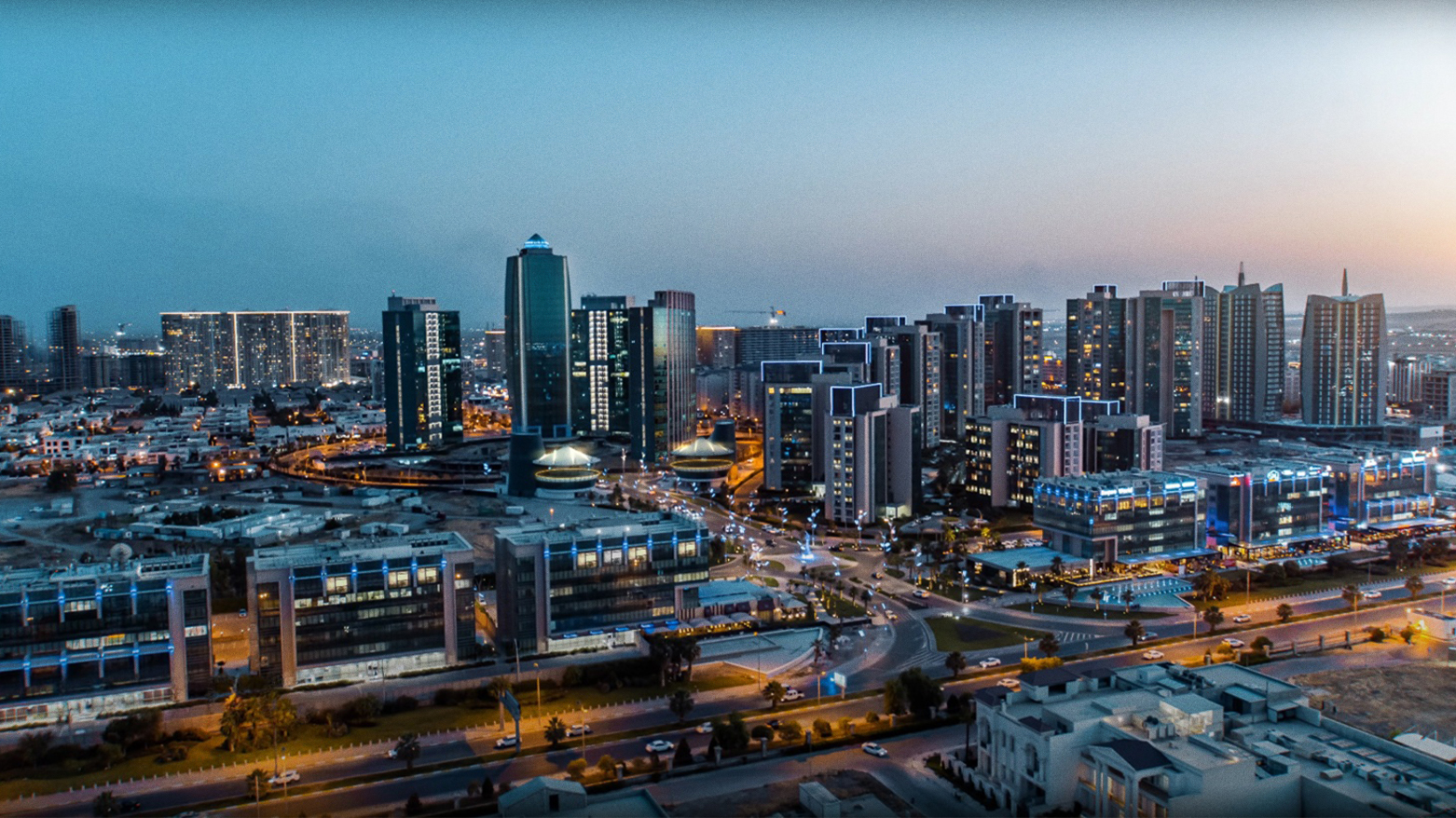Green Belt and Water Project Spark Real Estate Boom in Erbil
Erbil's Green Belt and Emergency Water Projects are fueling a real estate boom, with land prices soaring. The initiatives are solving the city's water crisis, expanding green spaces, and bringing tangible relief to citizens, marking a major urban transformation.

ERBIL (Kurdistan24) – Major infrastructure initiatives, including the ambitious Green Belt and Emergency Water Projects, are fundamentally reshaping Erbil's landscape, fueling a significant surge in land prices in the capital. The arrival of essential services and the formalization of land ownership have caused property values in some areas to jump by as much as $10,000 to $15,000, signaling a new phase of urban development and economic activity.
The impact on the real estate market has been direct and dramatic. An owner of a real estate office told Kurdistan24 that the reasons for the price hikes are clear. "The reasons for this are the arrival of services to the area, as land has been converted from temporary card status to official land deed following the implementation of the Emergency Water Project and the Green Belt," he explained.
He noted that property prices have seen a general increase ranging from $10,000 to $130,000. Providing specific examples, he added that land prices in the Baghamra area, which previously ranged from $6,000 to $7,000, have now reached $16,000. Similarly, in the Krasor area, prices have climbed from $12,500 to $23,000.
These economic shifts are directly linked to the commencement of large-scale government projects. On Monday, August 4, 2025, Erbil's Mayor, Karzan Hadi, announced that the first phase of the Erbil Green Belt project has officially entered its implementation stage. According to the mayor, this initial phase will cover an area of 12,900 dunams and will be completed by local companies.
"We are now at the beginning of the project's implementation and no final date has been set for its completion," Hadi stated. He described these as "strategic projects, similar to the water and electricity projects," indicating that further studies will be conducted for the second phase.
On the city's outskirts, the first practical steps of this major environmental and development initiative are now visible. The project aims to expand green spaces while protecting the city from random urban sprawl and the impacts of climate change. Workers are currently installing iron poles and constructing a fence for a 2-kilometer-wide belt that will encircle Erbil. This area is being prepared for the planting of thousands of dunams with olive and pistachio trees, or other species suitable for the region's soil.
Alongside the environmental initiative, the Emergency Water Project is addressing a long-standing crisis for residents. After years of suffering from declining groundwater levels due to drought and increased consumption, the people of Erbil are now feeling a real improvement in water availability. The overuse of water had previously caused a sharp drop in well levels, a problem articulated by Ameen Ismail, a well operator in Erbil. "This well was drilled in 2016 and was later deepened, but with recurring droughts, the water level dropped significantly, and the amount extracted decreased," he said.
With the completion of the first phase of the Emergency Water Project, 240,000 cubic meters of water can now be supplied daily to 20 neighborhoods. A main reservoir implemented in this phase has been a turning point, supplying 10 neighborhoods with water 24 hours a day.
The positive change is being felt directly by citizens. "We were living in a real crisis, and everyone was eagerly awaiting this project," said citizen Ali Mohammed. "Today, water reaches our homes regularly, and we are very happy." Housewife Amal Jamili added, "We chose to live in Erbil because its electricity and water are regulated, although some areas still suffer from poor water supply. We try to conserve, and we hope the project will solve the problem permanently."
The strategic project, costing about $480 million and implemented in less than 550 days, aims to secure Erbil's water needs for up to 30 years. Upon its full completion, it is expected to solve the city's water crisis by 100%, as part of the Kurdistan Regional Government's broader efforts to ensure water security and respond to climate change and population pressure.
